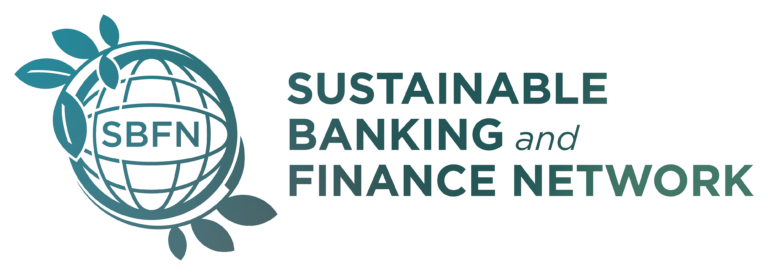SBFN (2023) SBFN Toolkit on Developing Sustainable Finance Roadmaps, # 115 p.
Climate risk is going to be a very critical risk in terms of our banking activities or financing activities.
- This Toolkit combines key resources, emerging trends, and lessons from SBFN members into a practical and comprehensive guide to help policymakers in emerging markets develop and operationalize sustainable finance roadmaps.
- It consists of a Guide and Excel-based Mapping and Benchmarking Tool.
The Developing Sustainable Finance Roadmaps Guide covers:
- Key fundamentals of developing a roadmap
- Process to develop a roadmap
- Content and measures to include in a roadmap
- Case studies and lessons from SBFN members
- Resources and templates for roadmap development
The Toolkit also builds on the SBFN Measurement Framework Methodology, a comprehensive assessment to benchmark sustainable finance progress in line with international good practices.
Download the Toolkit at https://www.sbfnetwork.org/publications/
Climate risk is going to be a very critical risk in terms of our banking activities or financing activities and by the regulator moving that step and trying to bring it to the level where banks need to put at the forefront of their credit analysis so that climate risk is taken as part of the risk that needs to be assessed mitigated and reported. This was a very critical step. The Kenya Bankers Association (KBA) is supporting its member banks to be able to comply with the guidelines that have been put in by the Central Bank (...) One of the key risks that we face is the transition risk. A major challenge is that the landscape is evolving quite rapidly. Habil OLOKA Kenya Bankers Association
A public webinar for members and other interested users will be organized in the summer 2023.
Click here to subscribe to receive information on SBFN events.
About SBFN
Established in 2012, the Sustainable Banking and Finance Network (SBFN) is a voluntary community of financial sector regulators, central banks, ministries of finance, ministries of environment, and industry associations from emerging markets committed to advancing sustainable finance for national development priorities, financial market deepening, and stability.- SBFN members are committed to moving their financial sectors toward sustainability, with the twin goals of improved environmental and social risk management (including disclosure of climate risks) and increased capital flows to activities with positive climate, environmental, and social impact.
- As of April 2023, SBFN comprises 77 member institutions representing 63 countries and US$ 43 trillion (86 percent) of the total banking assets in emerging markets.
- IFC is SBFN’s Secretariat and knowledge partner, assisting members to share knowledge and access capacity building to support the design and implementation of national sustainable finance initiatives.
- For more information, visit the SBFN website at www.sbfnetwork.org



No comments:
Post a Comment